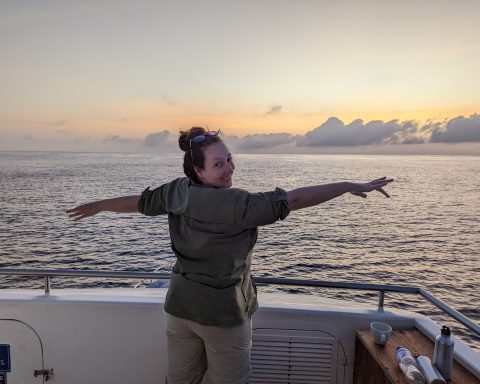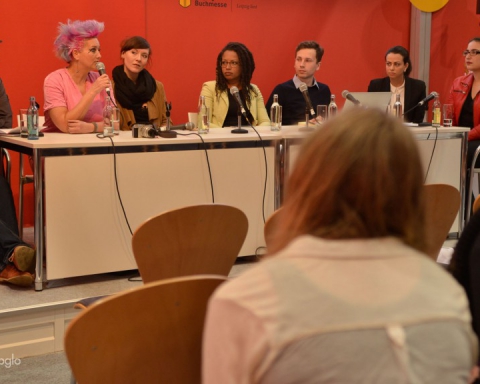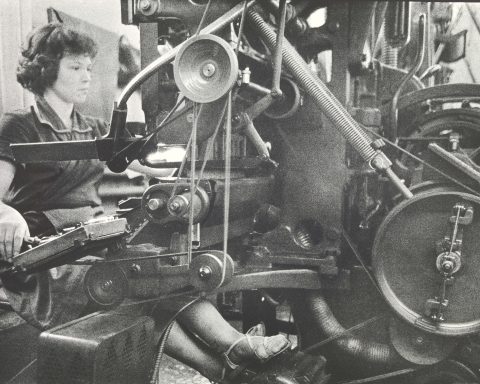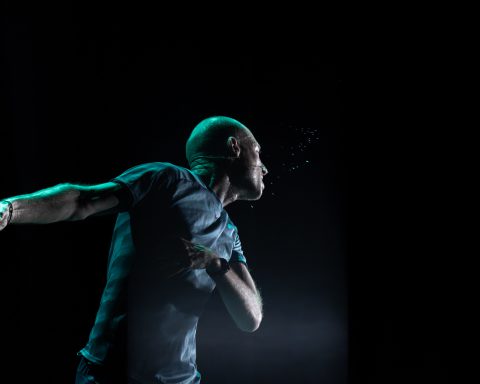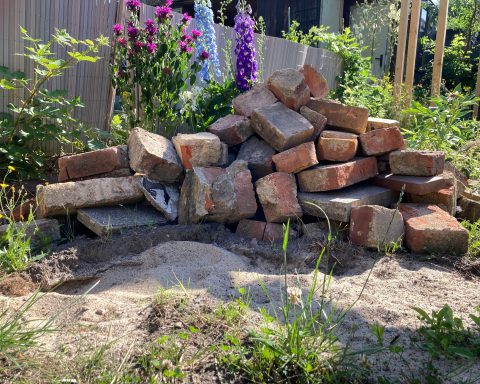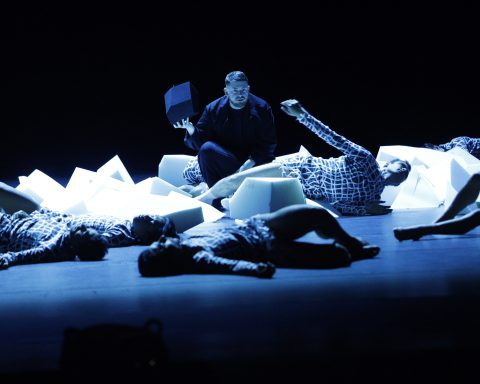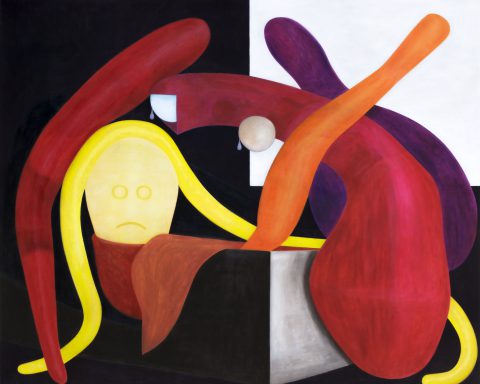-

Robert Christijan Broerse, by artist Ave Kägo, Estonia
Córdoba
Lejana y sola (distant and lonely)
I believe there are some cities in which you must dream yourself before you arrive.
Years ago I had seen the film Lawrence of Arabia and in a melancholic moment, the late Sir Alec Guiness in the role of Prince Feisal reflects on the lost glory of Córdoba. He tells the titular character that once there were “two miles of public lighting in the streets when London was a village.”
The Prince reflects on the war with the Turks and tells Lawrence that he longs for the “vanished gardens of Córdoba.”
Today, Córdoba is still beautiful but when I arrived years ago, it was like visiting the house of a famed but long-dead composer.
You walk amongst the relics, see the scraps, the letters, the composition sheets but everything is under glass, everything cannot be touched, history left behind.
Coming to such a place, a city, if you become too cynical, you stop seeing the beauty. You try not to fall for the fabrication, the city on display in post cards and in “Made in China” souvenirs; you want to feel closer to something that brought you there.
So often you have to look harder and maybe, you’re not quite successful.
Puento Romano (la reflexión)
Flocks wander into sunset
church bells sonorous, orderly
amidst the thunder of centuries
as it always has been
Questions or ringing songs bellow
and drown calls from the high tower while
ghostly banners flutter high above
as it always has been
Over the river’s green,
writhing in resignation
but look below, above, placid
parapet, no soldiers nor shields
nor shush of arrows,
ghosts adorn olive-hued hills… and distances
Arriving late in history, tourists’
babble in brooks of conversation
meandering through museums of swords,
tucked in scabbards and there
the red and white arches, courtyards, patios
returning for the wine in the evening
Hands reach in pockets to pay Euros
for the guitar chords, to keep the giddy
Flamenco man alive and this gypsy
tinkling trinkets, amber, bezels, the carnelian box
sitting atop a blanket of faded embroidery
and more of the same scattered about
just scattered about
further on, and further on
-

“Córdoba – 497” by Masherrador – Own work. Licensed under GFDL via Wikimedia Commons.
In its time this place was a centre of innovation, learning. It was the Arabs of al-Andalus who rescued the great Greek Philosophers from the ravages and backwardness of Medieval Europe, preserving the works of Plato and Aristotle, continuing the philosophical dialogues by writing their own commentaries and treatises.
And science. The genius of Arabic engineers had turned the former Roman Province of Hispana, (a backwater in the time of the Caesars) into an agricultural wonder with innovative irrigation systems. We should remember it was the Moors who first introduced rice and citrus fruits into the arid landscape.
Whether in the libraries, in the great palaces or in the countryside, the mind and heart were devoted to beautifying life.
Libraries (III)
By the candle, there are
Sheets of polemics, treatises, Ibn Rusd, Aristotle, refutations,
al-Qu’ran and poetry…
and libraries with that one echoing crack,
my steps around the table, and in the pages, I lean down, inhale
perfume,
this,
one of the books… she once held
stare awhile, and try to read on, but then I see now, yes, how the letter… Waaw (و)
resembles hair over neck and shoulder,
how it falls as if like a wave when she was dancing; my lips coupled to this
word
‘and’(و)… and there in all these pages, rereading simple verse,
to see it,
how it
forms black hair
how
my lids sink,
and this, my sighing breath which once wandered over almond shoulders
as she slept
…
as she slept
But beauty and wonder brings its own corruption.
Warring factions within the Western Muslim society of al-Andalus, leading to the beginning of a greater loss. The Muslims who made the city great, a dynasty going back to Abd al-Rahman I (731-788) could no longer hold on to the reins. Perhaps they had been too tolerant, too in love with the luxury they feverishly fostered and generously cultivated. One philosopher, Ibn Khaldun (1332-1406) suggested that a civilization that had time to plant orange trees was doomed; the “Orange Grove” theory of history.
Yet, the dynasty that deigned to urge the orange trees to grow had also built the great Mosque in the centre of Córdoba with each generation adding another ample addition.
The Mezquita, the famed Mosque still stands proudly albeit with a Catholic chapel like a knife wound in its centre. Amidst what feels like an endless row of columns and red and white arches, a place bathed in a subdued, sepulchral light like that of dusk or dawn, there is this intrusive symbol of the conqueror. The way a prisoner must feel in the presence of a prison guard, such is this chapel to the mosque. It is a dark reminder that a greater culture, one where Jews, Christians and Muslims for many centuries co-existed, was no more.
And maybe had never truly been.
I will admit, then and now, I am constantly on guard against my own romanticism. While visiting Córdoba I knew that while the irrigation canals were being dug, while philosophers gathered in gardens, while poets recited by fountains, men were still killing men in the north of the Iberian Peninsula. Wars raged on beyond the idyllic, dove-warbling backdrop. There was still slavery and injustice. It wasn’t all just orange groves and roses, nightingales in gardens.
Yes, to glorify the past is to wade into nostalgias we hopelessly borrow from our own defeated, often adolescent ideas of Utopia. But there is something to counter my own wayward vision; for even to this day, the Catholics of present-day Spain still regard the Moorish legacy as an abomination. They don’t see their own heritage as a result of a Muslim culture. No, they remember their ancestors fought valiantly against it. Yet why praise their version of the ‘facts’?
After the fall of Córdoba and neighboring Seville and Granada, we had the Spanish Inquisition, auto de fes, the Conquistadors in the New World, the suppression of the Netherlands for some 80 years. Thus tides and ebbs of domination and suppression, domination and suppression. Alongside the British and the present-day Americans, the Spanish were absolutely brutal in their domestic and foreign policy. Truly, since Isabella sat on the throne and Columbus went out into the New World, Spain and its people have suffered. Moreover, they have spread suffering throughout the Americas.
One might argue that had the Moors of al-Andalus sustained their power, would they have set sail across the ocean? Would they have enslaved indigenous tribes? Would they have weighed down their ships with bloodied gold to beautify the Motherland?
Most likely, I can cynically say.
Maybe it is better to believe that Córdoba flowered once, that it was cut down along with its neighboring cities, with the greater al-Andalus before it could do more harm than good.
Still, I haplessly wrote this poem while in Córdoba:
Desde tu salida… (Una alegoría para ella)
Bare feet trickles like a brook over stone, hand carrying shoes
unfurled black hair, a shawl, shadow, she
softly departs
and the overturned lamp, and the book cracked open
stuccoed rooms, truly are they mine?
Warmth seeps up through my soles on the tiles
sunlit
I take down from the shelf, a resolution of bread,
oranges, I break open the skin, and it is fresh, a breeze of
Citrus, and for a moment I smile,
But this fruit, from her gardens , so too the lemons and rice,
I reach for a bottle then, as if her the red liquid for this
Ache, she who wouldn’t drink, and I,
clap the worn knife against the wood
pausing,
fruit split… the crumbs of bread as if tiny stones from a battle, a battered
wall,
the one I took down with my wrinkled fingers,
my wrinkled hands, her
drying blood,
knuckles I sweetly suck, her fruit in my mouth.
…


